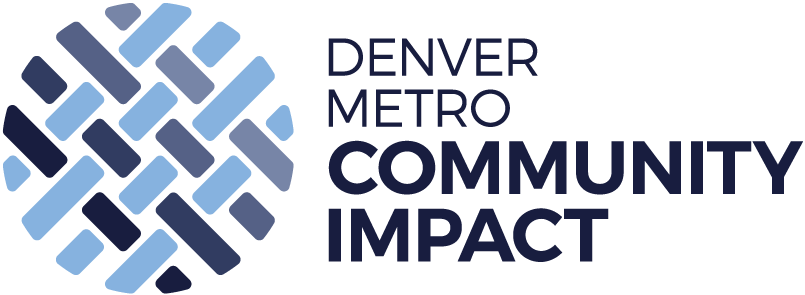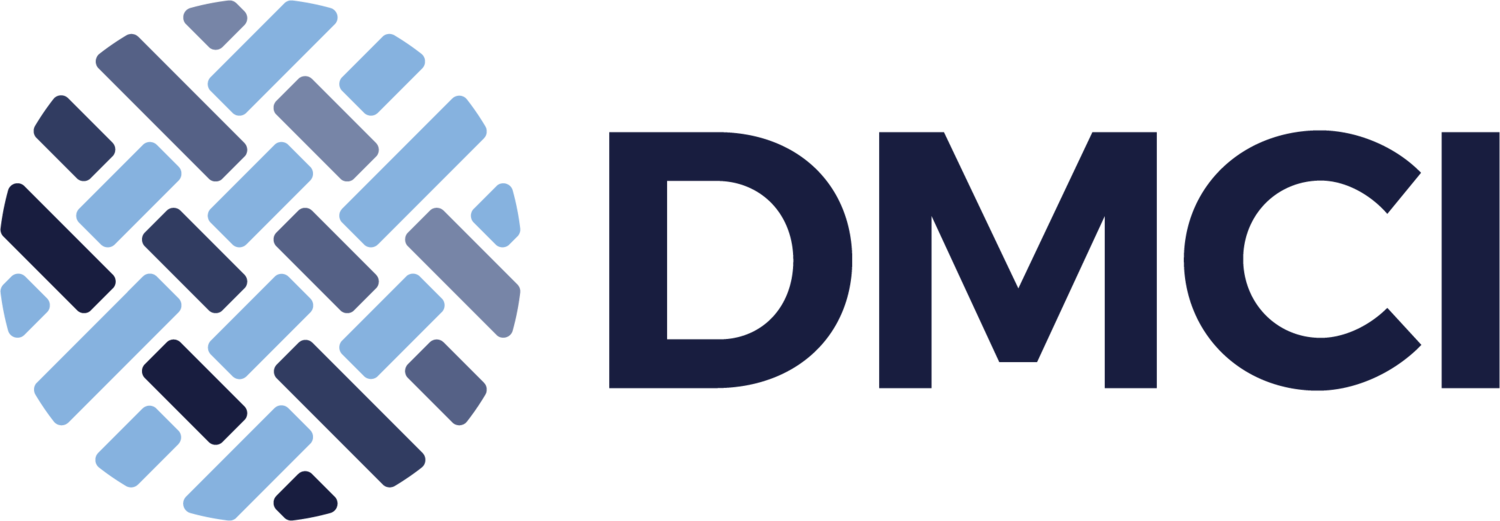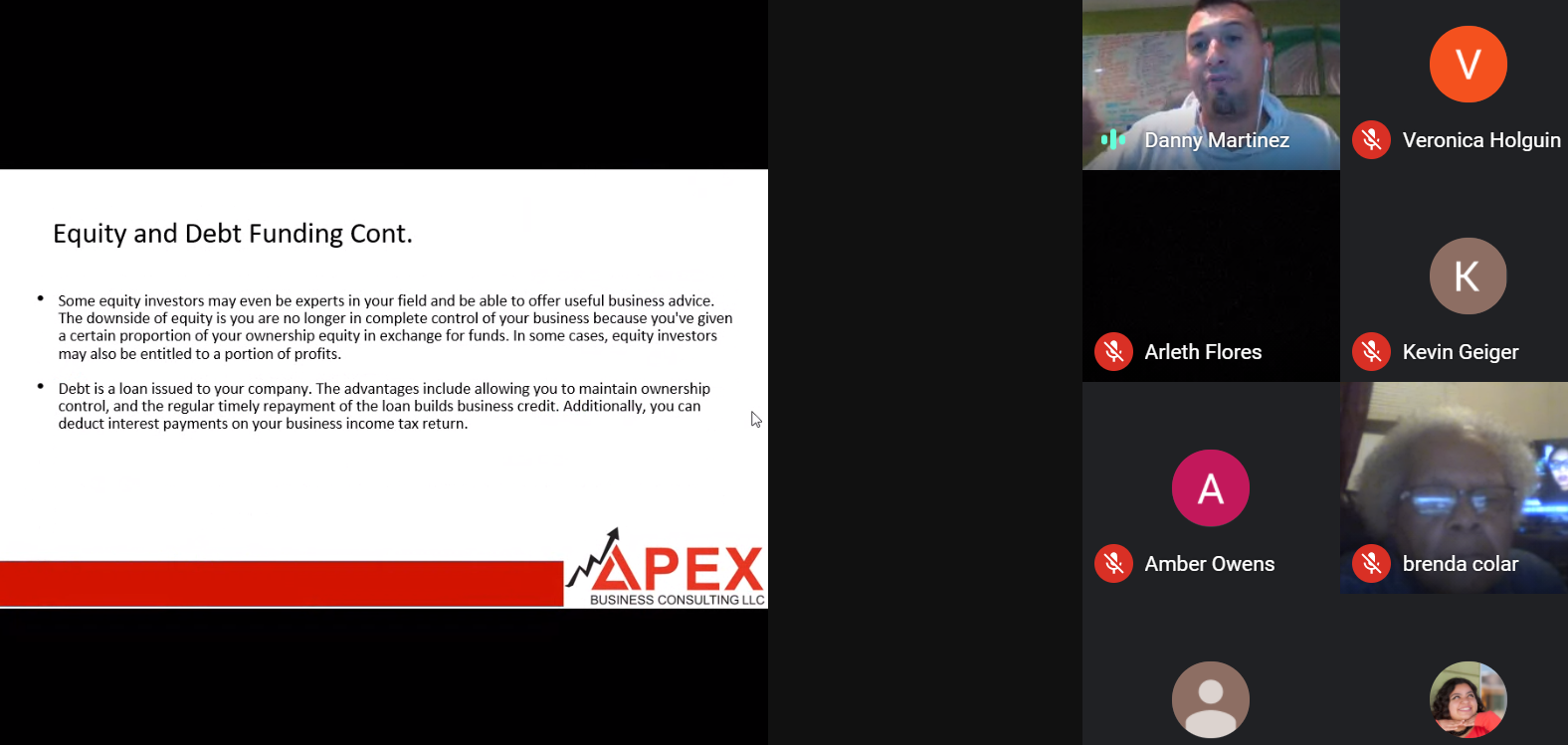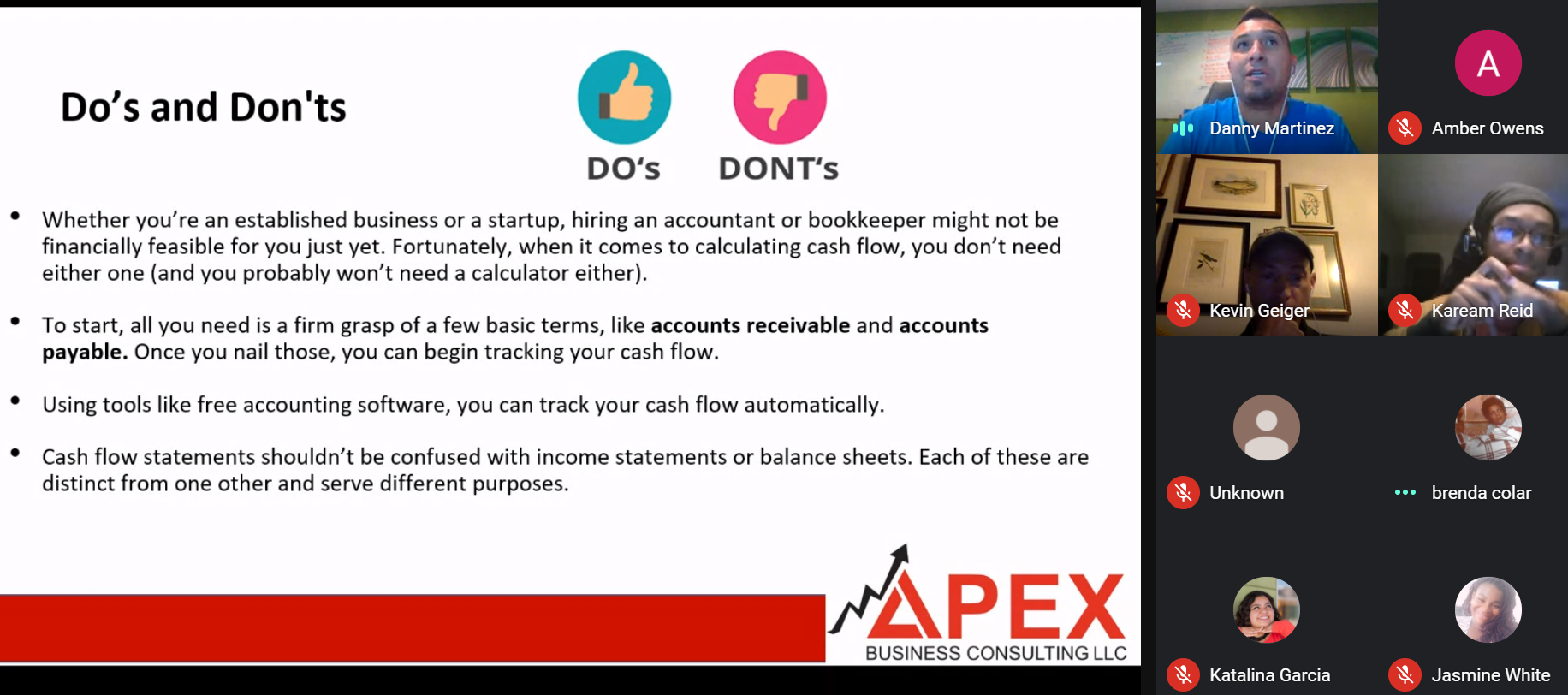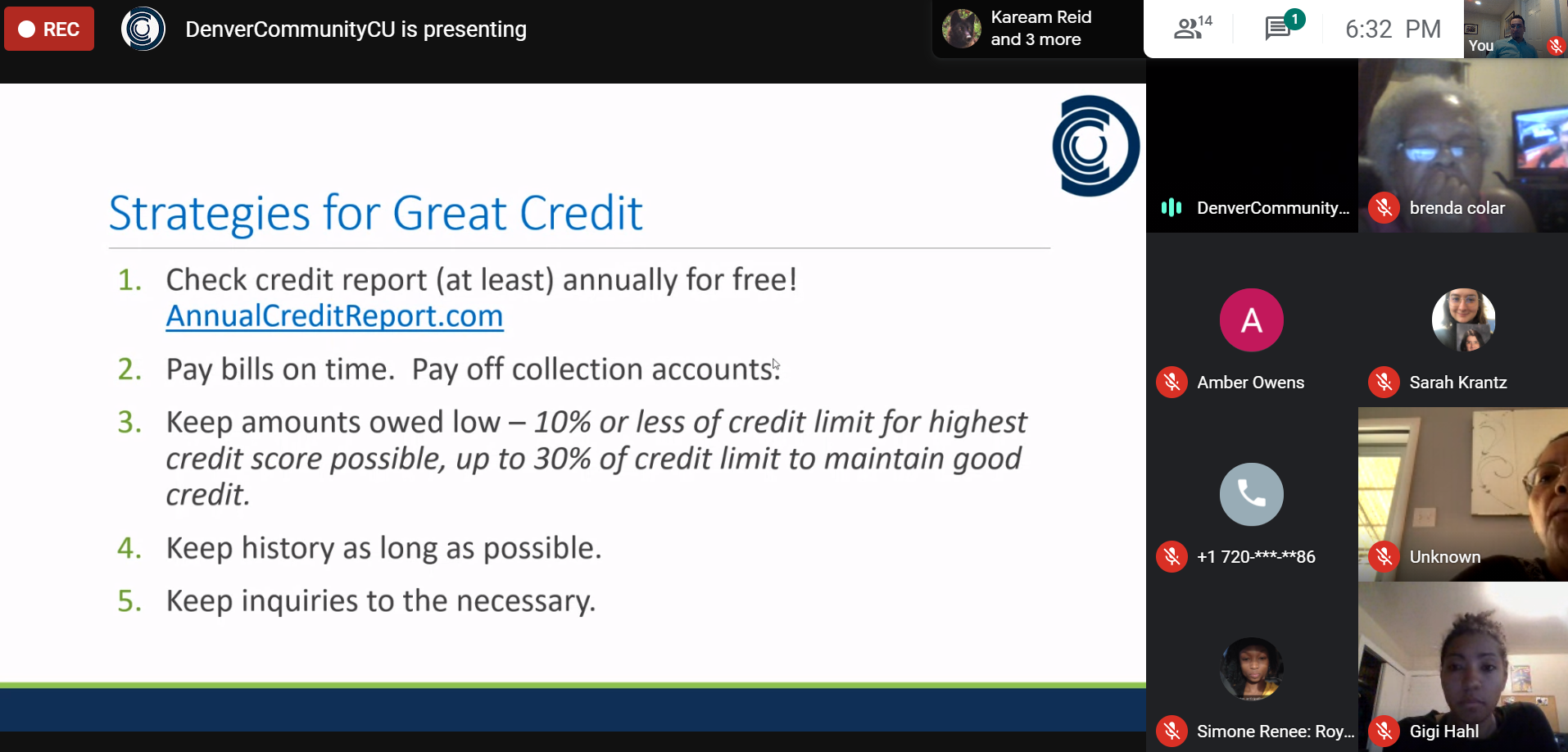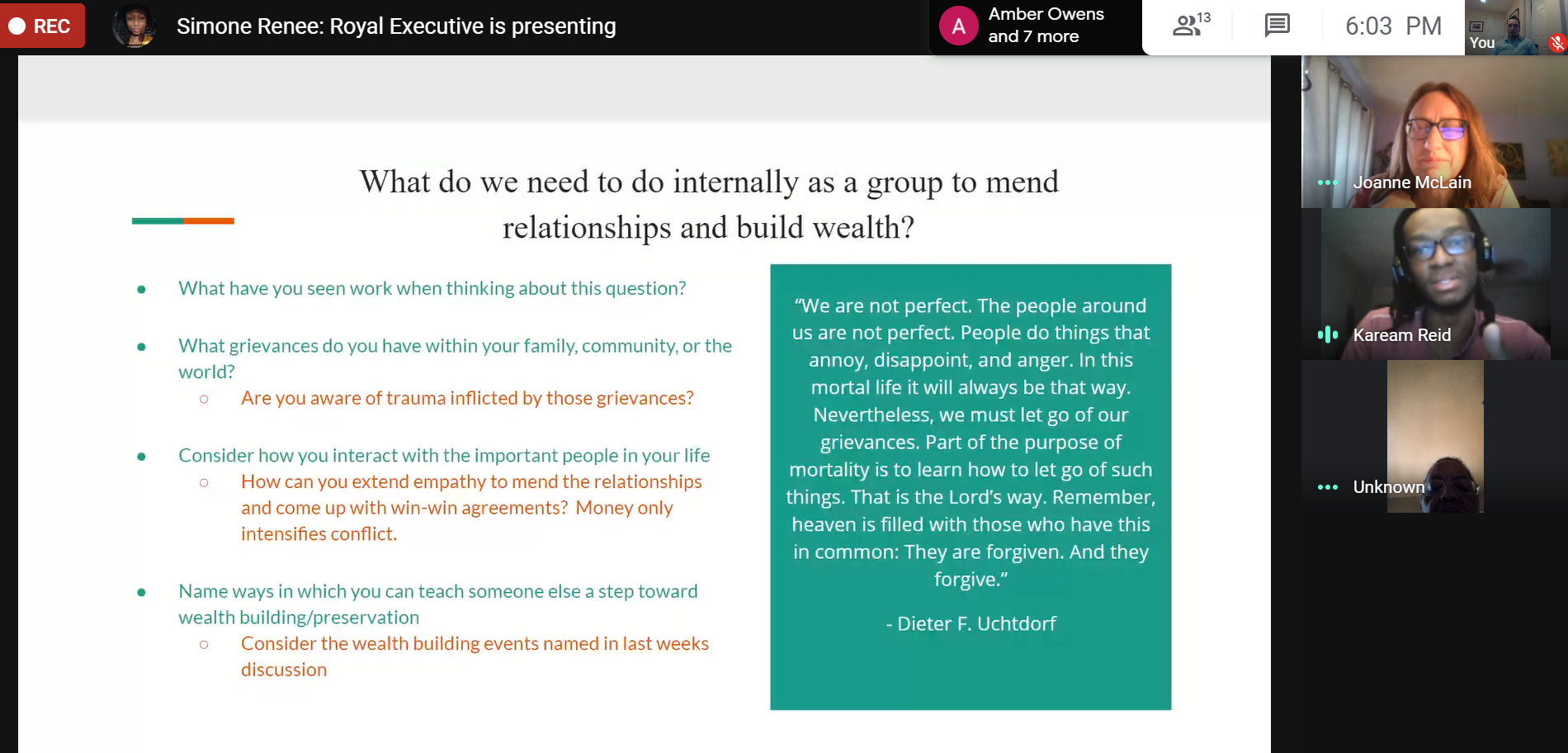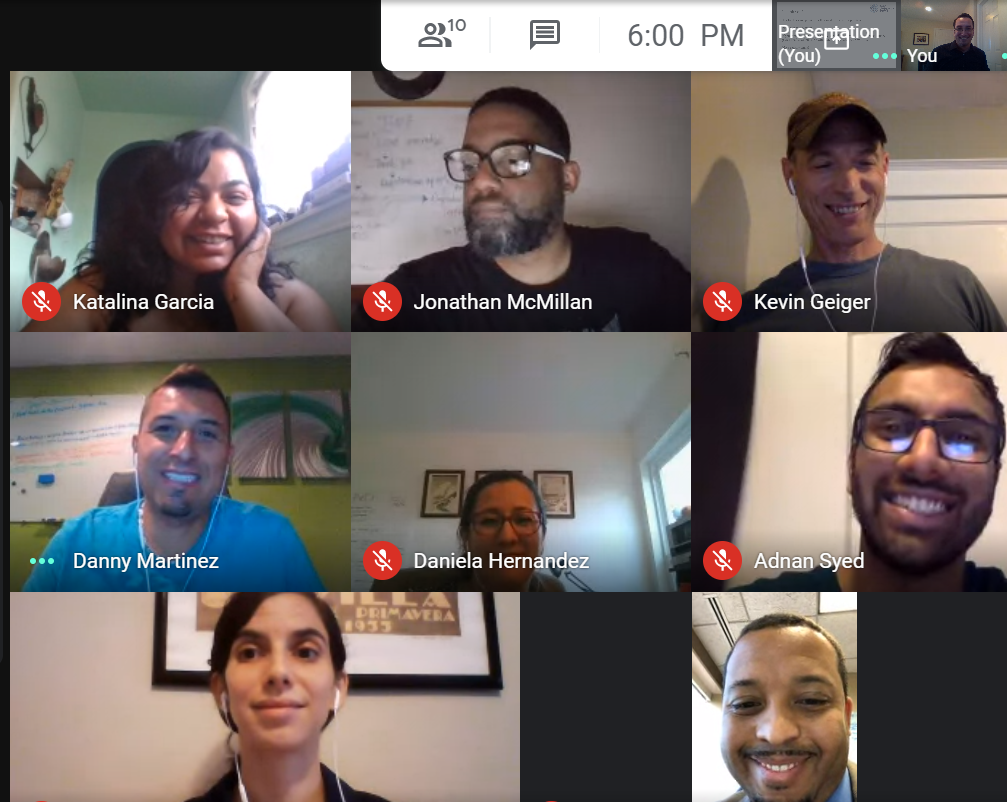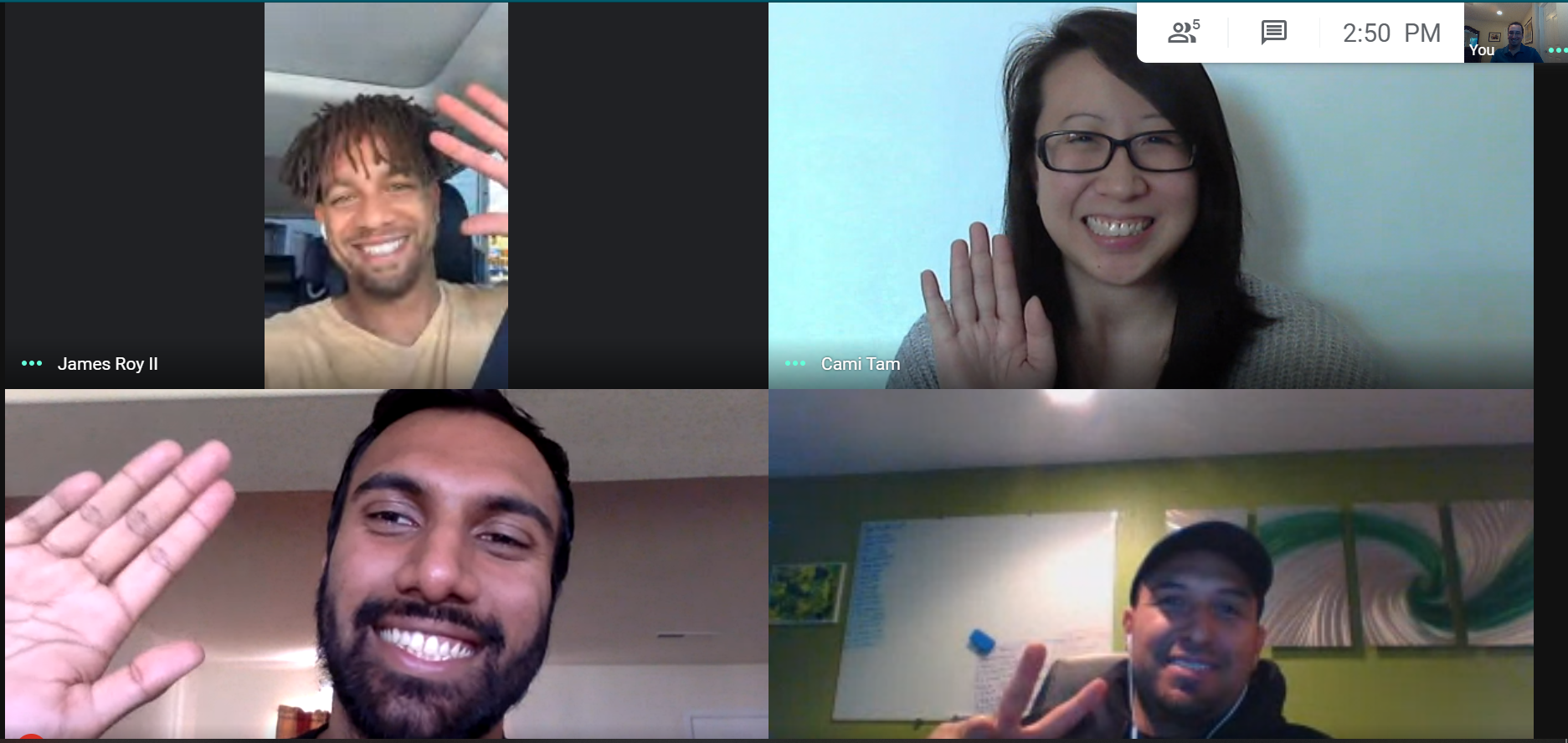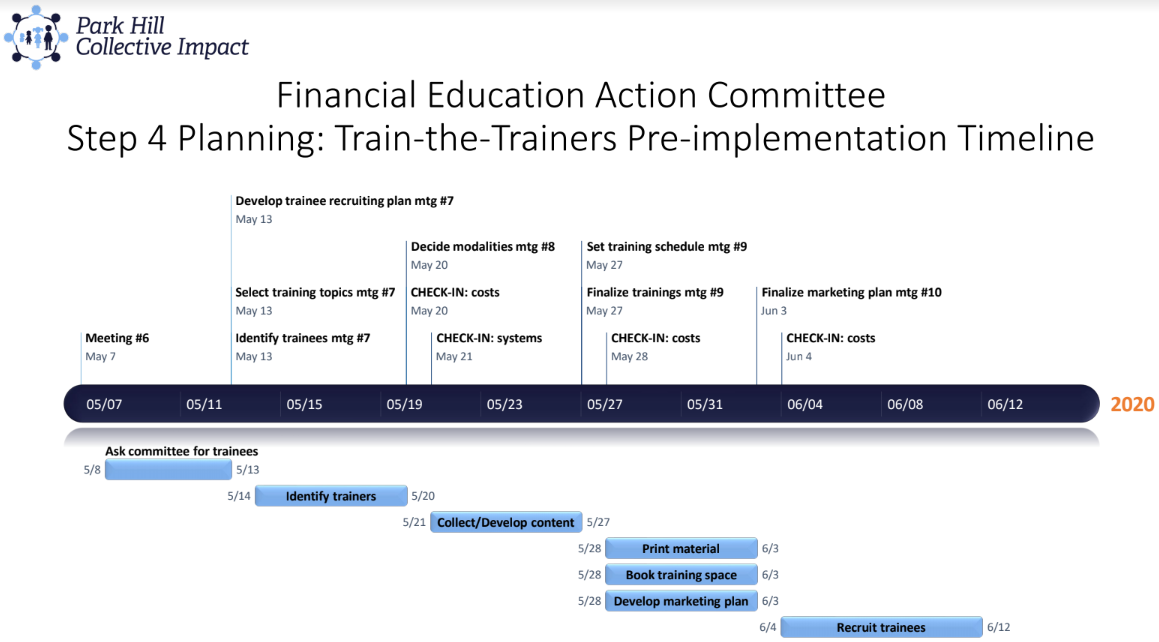
Park Hill Financial Empowerment Program
Park Hill Financial Empowerment Program 2020
Northeast Park Hill is experiencing a systemic economic crisis that requires an urgent human-centered response by and for the community.
Background
Purpose:
To spread financial knowledge and resources through the influence of trusted community members in the Park Hill community to enhance the financial abilities of individuals and small businesses.
Call to action:
From 2019 Park Hill Talks, PHCI heard a call to action for culturally relevant financial empowerment in; Budgeting/Accounting, Personal/Business banking, Building/Maintaining good credit, Managing personal/business debt, Raising personal income/business capital, First-time home buying, Community wealth, and Estate/Inheritance planning. As a result, PHCI convened a group of individuals who Live, Learn, Work, Play, or Worship in Park Hill as an action committee.
Challenges:
Based on the data, Northeast Park Hill is experiencing a systemic economic crisis that requires an urgent human-centered response by and for the community. This is due, in part, to the following root causes: 1) Stigma - Social stigma surrounding financial literacy prevents local, small business owners and community members of Northeast Park Hill from gaining financial stability and success; 2) Training and Resources - Financial education training and resources are not readily available or relevant to local, small business owners and community members of Northeast Park Hill; 3) Financial Products/Services - Local, small business owners and community members of Northeast Park Hill are not provided with financial opportunities by traditional financial institutions due to perceived high risk.
Research:
Research suggests that financial empowerment through train-the-trainer models geared at mediating individual behavioral change through the influence of interpersonal, organizational, and community environments have sustained success in communities like Park Hill.
Strategy:
Through the Train-the-Trainers model, experts will provide basic training to trusted community members on financial concepts, on how to coach, and will provide additional resources for referrals. The trainees will then apply that knowledge in supporting small business owners and community members who live, learn, worship, work, or play in Park Hill.
Modality:
Online, live, video meetings through Google Hangouts. Sessions will be recorded and made available for any participants who are unable to attend live.
Timeline:
Weekly, 5:30 - 6:30 PM, beginning Wednesday, August 12, 2020 and ending Wednesday, November 25, 2020.
End Users:
Families, small businesses, and community members who live, learn, worship, work, and play in Park Hill.
Action Committee Members:
Action committee members consist of individuals who Live, Learn, Work, Play, or Worship in Park Hill. This work will have a collective impact, by and for the community, with the shared vision to create A Community That Is Thriving, Not Just Surviving.
Brianna Benevides, Heart and Hand Center
Joseph Dominguez, Love Thy Neighbor
Jessica Dominguez, Love Thy Neighbor
Narcy Jackson, Athletics and Beyond
Olivia Lincoln, Heart and Hand Center
Rashon Manning, FirstBank
Danny Martinez, APEX Business Consulting
Patricia Ochoa, DPS PREP Academy High School
Justin Petaccio, resident and Spire Financial
Cordelia Randall, CrossPurpose
Chelese Ransom, Financial Health Institute
Cherese Scott, Partner Colorado Credit Union
Adnan Syed, volunteer and former Impact Manager with PHCI
Cami Tam, Heart and Hand Center
Billy Williams, New York Life
Shawn Young, Financial Health Institute
Implementation
Programming:
The program, in its entirety, is provided as a pilot to a cohort of 10-15 trusted community members through live, online video meetings and asynchronous supplemental videos and training resources.
The program consists of 16, 1-hour sessions divided across 3 modules:
Psychology, history, and trauma;
Personal finance fundamentals; and
Business finance fundamentals.
Module 1: Psychology, History, and Trauma
Expert Presenters: Metro Deep and The Financial Health Institute
Come together build relationship / Goal Set - Our individual and collective why
What do we need to be successful and what do we need from others in order to do so?
Module 2: Personal Finance Fundamentals
Expert Presenters: Denver Community Credit Union
Module 3: Business Finance Fundamentals
Expert Presenter: Apex Business Consulting, LLC
Resources:
To view the slides and resources shared during the program, please click here.
Experts:
The following individuals and organizations developed the curriculum and facilitate the sessions.
Danny D. Martinez, CEO
720-361-8786
Trusted Community Members:
Trusted community members consist of individuals who Live, Learn, Work, Play, or Worship in Park Hill. They support a network of other community members and local small businesses.
Brenda Colar - Lives and Plays
Arleth Flores - Lives
Kevin Geiger - Lives, Plays, and Worships
Veronica Holguin - Works at Love Thy Neighbor (Partner)
Amber Owens - Works, Lives, Plays, and Worships
Clara Owens - Lives and Plays
Kaream Reid - Lives
What we’ve been up to…
Targets and Goals
Operation and Performance data will be collected and analyzed to evaluate program effectiveness. The instruments detailed below will be the data collection devices via Google forms.
End of Session Surveys - value and satisfaction
Trusted Community Members
Target: 90% positive responses
End of Module Surveys - continuous improvement and satisfaction
Trusted Community Members
Experts
Target: 90% positive responses
End Program Survey - impact and satisfaction
Trusted Community Members
Experts
Target: 90% positive responses
Quarterly Reporting - impact
Trusted Community Members
Experts
Targets:
Average of 4 referrals per quarter
Average greater/equal “Occasional” usage of information, resources, and referrals per quarter
